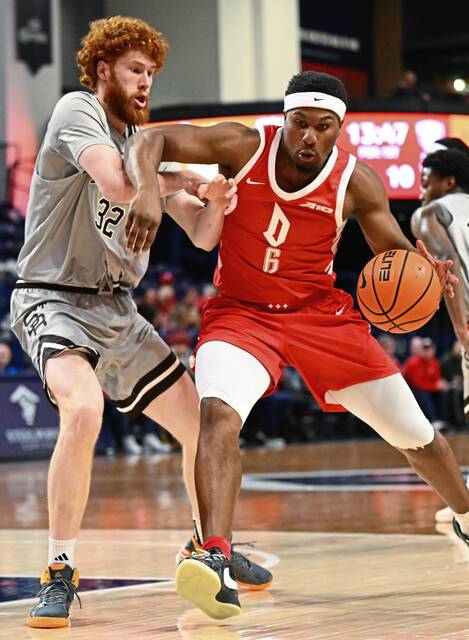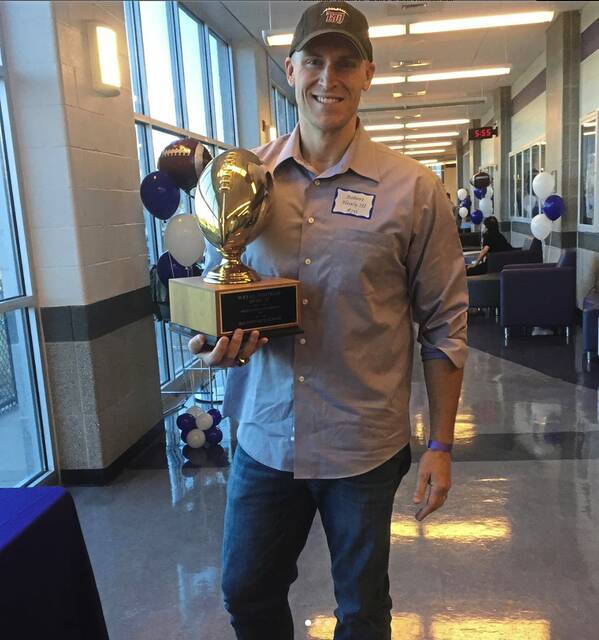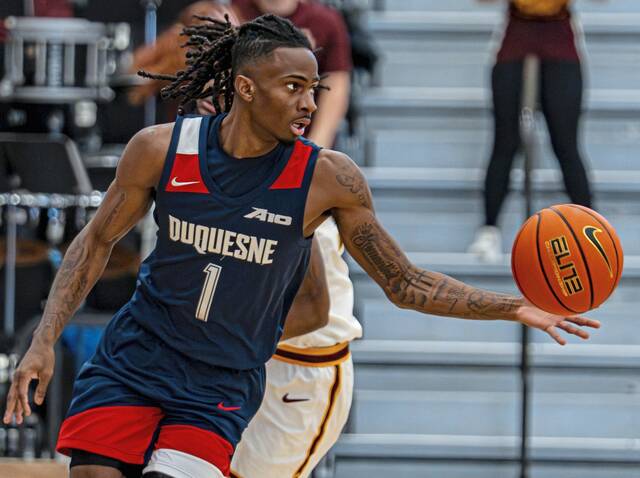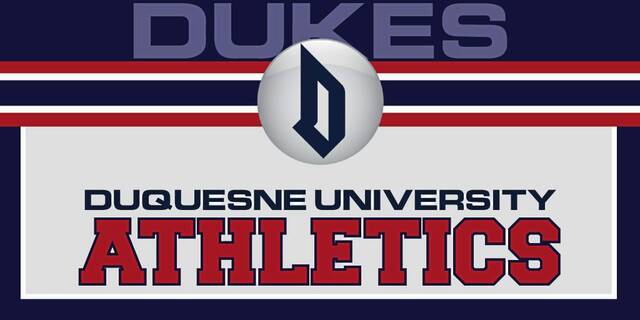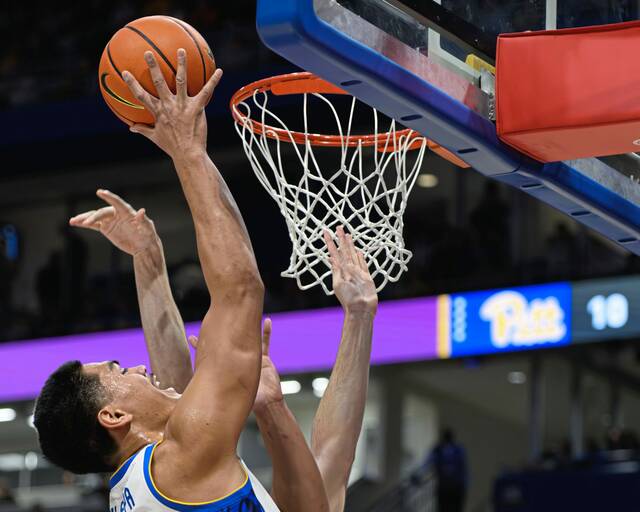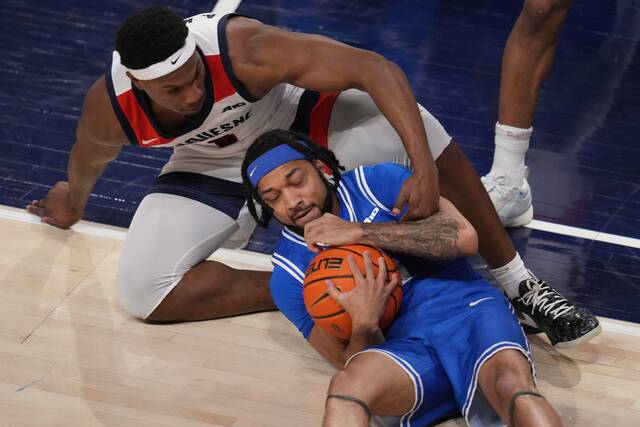When Keith Dambrot was playing baseball at the University of Akron and merely trying to keep ground balls from smacking him in the face, he never imagined how college athletics would change in the next four decades, and how he must change with it.
“Never,” he said. “I was just thankful I was able to play.”
Now, as Duquesne’s basketball coach, he watched Monday as the Supreme Court gave his players — and thousands of other collegiate athletes across the nation — the ability to earn money without ever signing a contract with a professional team.
In a 9-0 ruling, justices upheld a district court judge’s decision that the NCAA was violating antitrust law by placing limits on education-related benefits schools can provide to athletes. The decision allows schools to provide their athletes with unlimited compensation that must be connected to their education.
Dambrot must continue studying the ruling and what it means for Duquesne and his players. Meanwhile, he wonders if a college campus, suddenly, becomes an even better place to spend four or five years.
“Do guys turn pro now or can they make more money staying in college?” Dambrot said. “Especially the marginal guys. They can make a lot of money now. Look at a guy who is a (NBA) G League guy. He may be able to make more.
“If guys are aggressive and get to know the right people, they can make a lot of money.”
It’s an opinion that isn’t as outlandish as it appears in the face of the high court’s ruling, Justice Brett Kavanaugh’s concurring opinion and the imminent changes that will allow college athletes to profit from their names, images and likenesses.
In his written opinion, Kavanaugh suggested the NCAA’s rules that restrict any type of compensation, including direct payment for athletic accomplishments, might no longer hold up well in future antitrust challenges.
Elsewhere on Duquesne’s campus, associate sports marketing professor Ron Dick said, “I think it’s way overdue.”
Dick, a Duquesne season-ticket holder whose resume includes marketing positions with the New Jersey Nets and Philadelphia 76ers, consulting with the Jacksonville Jaguars and New York Knicks and scouting for the NBA, puts the ruling into simpler, if hypothetical, terms.
Taking note of former Clemson quarterback Trevor Lawrence’s long, flowing hair, he wasn’t joking when he said Lawrence could have struck it rich before he was the first choice in the 2021 NFL Draft.
“If he had stuck around another year, there could be a possibility for him to do a Head and Shoulders commercial, similar to what Troy Polamalu does,” Dick said. “He could have gotten paid and kept his eligibility.”
Of course, the Supreme Court ruling specifically mentions education-related benefits, such as handing out computers or offering internships to student-athletes. Washing your hair or signing autographs at a university donor’s car dealership hardly can be considered functions of academia.
“I have to read it before I can really evaluate what that means,” Dambrot said of education-related benefits. “Everybody’s going to have to figure that out, right?”
Asked about possible loopholes in the ruling, he laughed and said, “That’s what people do for a living is find loopholes.”
Dick watched with interest on Feb. 20, 2019, when Duke’s Zion Williamson tore his shoe and sprained his knee in a game against North Carolina.
Duke has had a long affiliation with Nike, but Dick wonders this: “What if Williamson had said, ‘I don’t like Nike. I want to wear either Converse or adidas.’ What if he really pushed the issue? Now, that could happen.”
Dambrot notes the ability to pay players (or, simply, offer better benefits than a rival school) could become an important recruiting tool.
Especially when he considers Duquesne is in the Atlantic 10 with Dayton, whose UD Arena seats 13,409. The Dukes’ Cooper Field House lists standing-room capacity at 4,242.
“Their donor base is probably even bigger than ours,” he said.
Duquesne recently anticipated the changing landscape of college sports and hired professional sports marketer Jordan Rooney as a personal brand coach for the men’s basketball team.
“Rather than sit on our hands, we were proactive,” Dambrot said. “We’re looking at it more long term, trying to help these guys market themselves so down the line they can get jobs and make money, besides making short-term money.”
The Supreme Court ruling is too fresh to know precisely what the long-term effects will be on college athletics, but there are some interesting possibilities to ponder.
“We’re a little ways away before we start selling the position at Alabama to be the starting quarterback,” Dick said. “It will take a couple years for this to shake out. It’s too raw.”
But he warns, “Imagine what Alabama could pay their quarterback. Imagine what Texas could pay. They can really roll out some money. This ruling says they, potentially, could. This could support lawsuits moving forward.”
What about at Duquesne, which is struggling to gain traction in the local sports market? How will its players benefit?
“Maybe there is no market for it right now,” Dick said, “but if we make the NIT or make the NCAA, would there be?
“Making the NCAA is a really big deal. 1977 was a while ago.”



